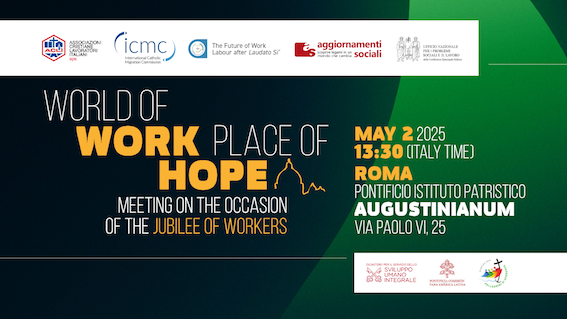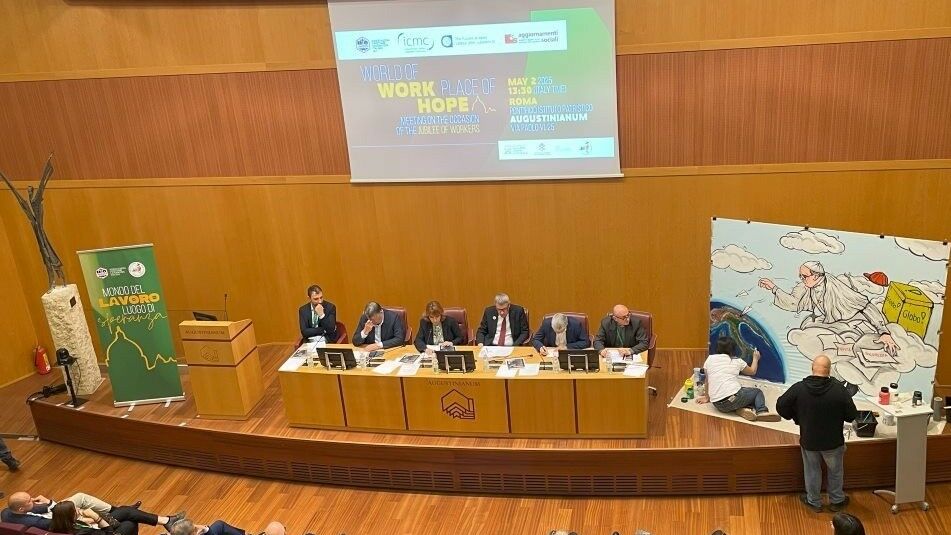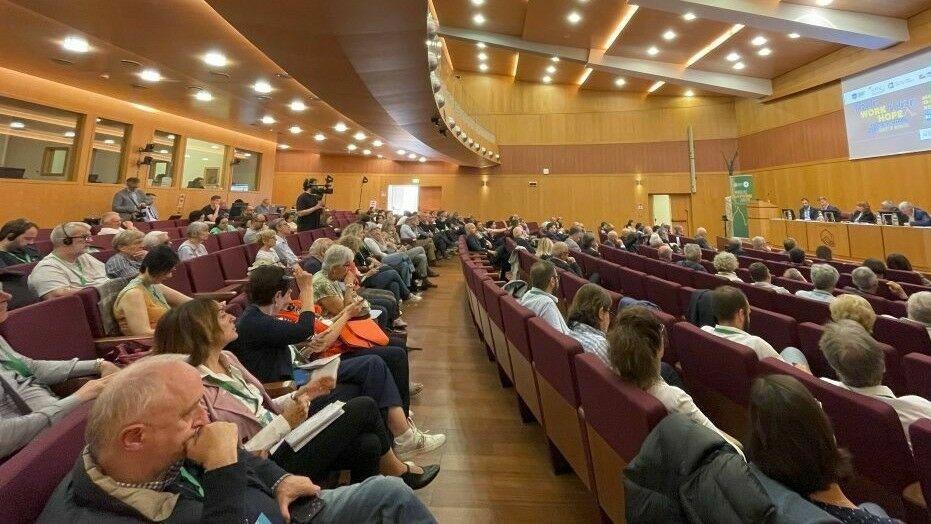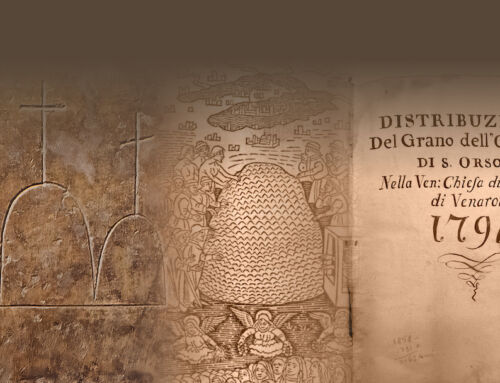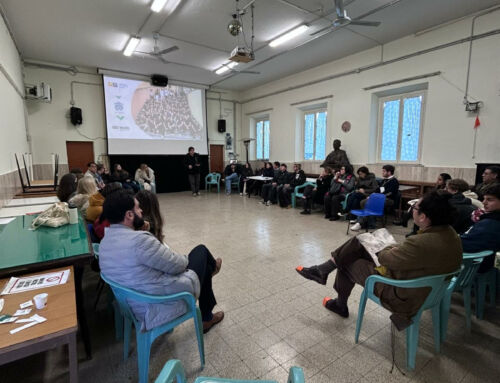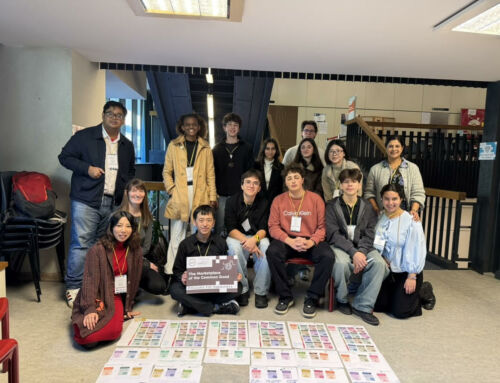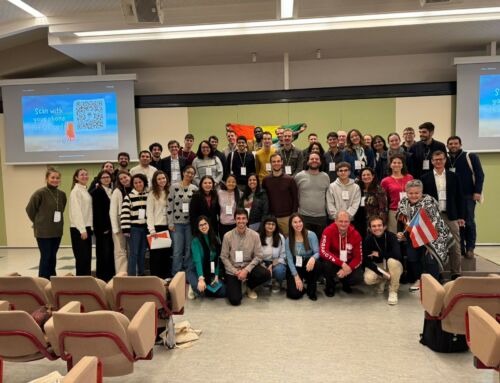The World of Work, A Place of Hope
The Economy of Francesco at the Jubilee of Workers
The speech within Panel 2 “Challenges and Hopes in the World of Work” on May 2, 2025
by Rita Sacramento Monteiro*
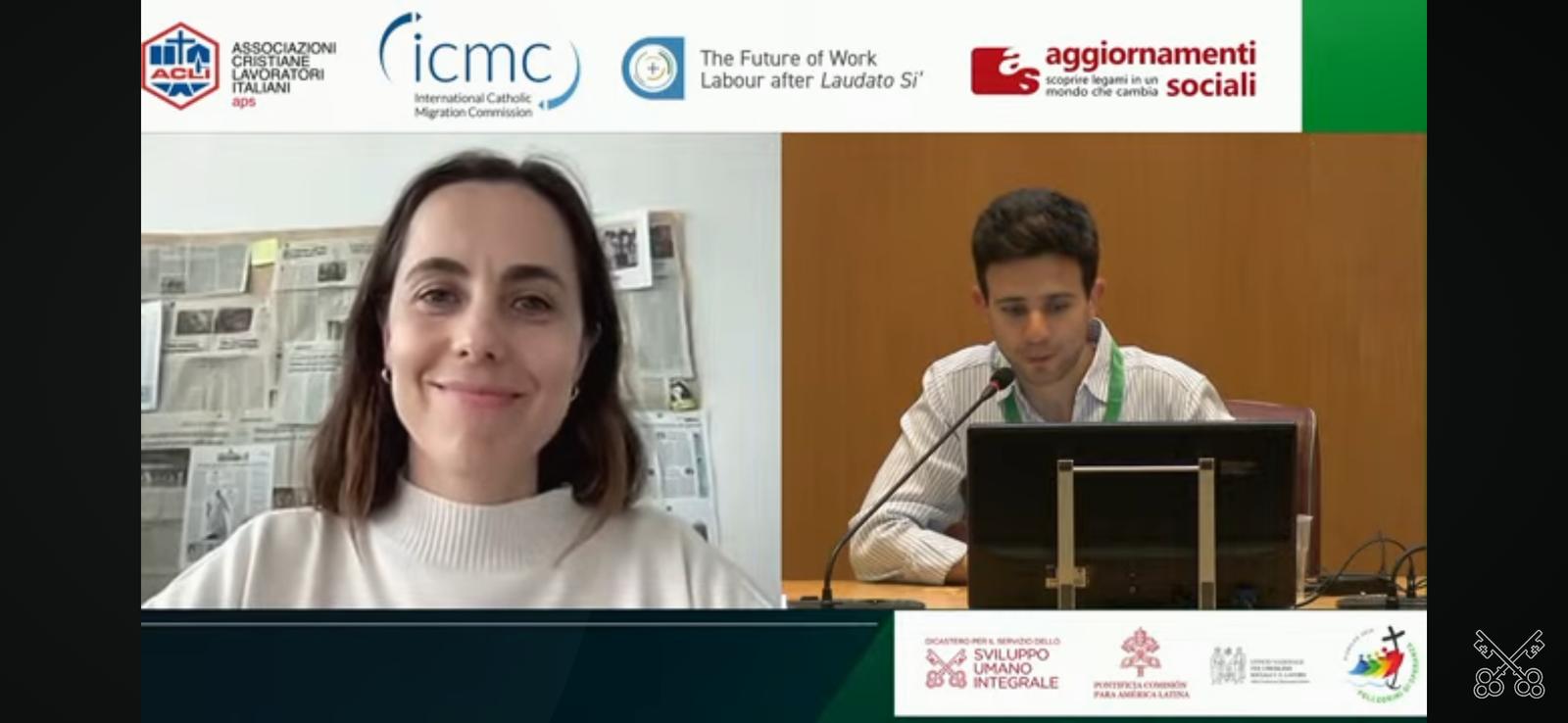
I’m Rita, and I’m one of the thousands of young people from more than one hundred and twenty countries around the world who read the letter written six years ago by our dear and already missed Pope Francis and felt called to take part in the transformation of today’s economy. I am connecting from Loppiano, close to Firenze, where these days the Economy of Francesco is organizing a workshop on Giving Care with Professor Jennifer Nedelsky – who has already been mentioned here.
I work for the recently created EoF Foundation and I am part of one of the twelve workstreams of the Economy of Francesco – called the Villages – specifically the one dedicated to Work and Care.
The twelve Villages of the Economy of Francesco are global platforms where, over the past few years, young people have gathered – thanks to digital technology – to reflect on an economy with a soul, starting from key themes that are central to economic life.
For the Economy of Francesco, an economy with a soul – one that truly cares for people and the planet – is an economy that recognizes, values, and protects safe and decent work for all. This is one of our core commitments, expressed in the Pact we signed with Pope Francis in Assisi in 2022.
Work allows each person to participate in God’s Creation, enabling us to grow as individuals and contribute to our communities. By choosing to name one of the twelve thematic Villages “Work and Care,” the Economy of Francesco affirmed from the beginning that work is a way of caring – for people, for resources, for what has been entrusted to us – and that care is the necessary lens through which we nurture relationships in the world of work.
In the time of Saint Francis of Assisi – the saint who inspires and gives name to the Economy of Francesco – the young man from Assisi was able to read the signs of the economic reality of his time, marked by deep inequalities, including the burden of interest-bearing loans, and had the courage to radically choose a different way of living and of managing our common home, putting at the center the most vulnerable. Just as Francis of Assisi heard God call him to go and repair His house, which was falling into ruins, so too do we hear today the call to rebuild the world of work — a place where challenges persist and where new cracks continue to emerge.
We continue to witness many contexts around the world where work is not valued or recognized, and where many are exploited and easily discarded. Young people struggle to find work that allows them to live out their talents and dreams, and older people face the discrimination of being told by the market that they no longer serve the purpose of work. Care work continues to be undervalued in a world where care is more urgent every day, and people without access to education and training continue to be excluded from the possibility of participating more fully in our common life. Even with work, so many people still cannot break the cycle of poverty and develop integrally.
We are also living in a time when some believe that, in the future, artificial intelligence might reduce or even eliminate the need for work – as if work were merely instrumental, and as if our lives could be fulfilled solely by meeting our material needs.
The increasing predominance of burnout, loss of meaning, and alienation in the world of work must concern us deeply as they are clear signs of how we have uprooted work from its value, meaning, and fruits. Young people desire to do meaningful work and to have the time to build their life projects. These two dimensions are meant to be in a fruitful dialogue and not in opposition. We cannot accept an economy where people need to accumulate jobs and mortgage the other dimensions of their lives. Nor can we resign to places of work where the logic of efficiency and competition destroys the value of relationships and collaboration.
So, in the year of the Hope Jubilee and the eight hundred years of the Canticle of the Creatures of Saint Francis of Assisi, what can we be hopeful for? What can we sing and praise, as Francis of Assisi did?
We can sing and praise a new culture of work that prioritizes people’s dignity, acknowledges the contribution of each worker, and generates shared economic value that considers shared meaning, and joy. A culture of work that allows for rest, regeneration, time for family, for spiritual life, and for contemplation.
We can be hopeful for a world of work in which every person can give their unique contribution and fully express their vocation and talents. And we can sing and praise the fact that so many of us continue the labor of translating to our realities, an integral work – a work that allows all dimensions of our life to flourish.
To continue building that culture together, we, as the Economy of Francesco, will meet this year in Rome to celebrate the Jubilee with an event dedicated to Restarting the Economy in which we invite you all to participate.
As Pope Francis asked us when we met him in Assisi, we know that a different, a better, a more humane, inclusive, and sustainable economy cannot forget work. In fact, it must put work and relationships at the center. It is not enough to create goods and services — we must continue to care for work, and to promote work that cares for everyone and everything.
—
*The Economy of Francesco Foundation staff and PhD Candidate in Integral Ecology

